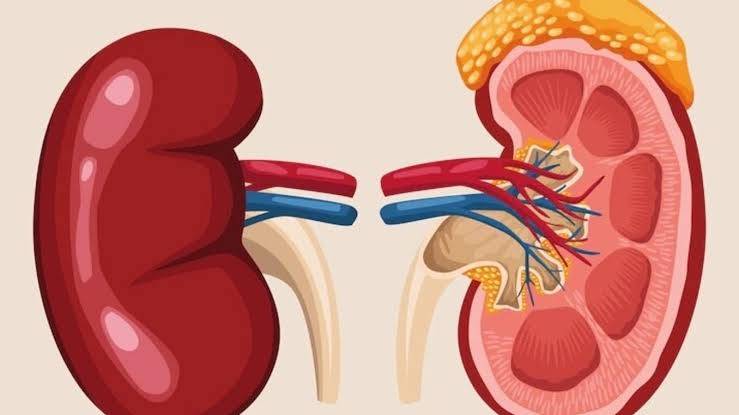By Tolu Bankole
The kidneys are vital organs that play a crucial role in maintaining overall health. They filter waste products, excess fluids, and toxins from the blood, regulate blood pressure, and balance electrolytes. Despite their importance, kidney diseases are on the rise globally, with significant implications for public health. This article explores the importance of kidneys, the causes of kidney disease, the alarming issue of criminal kidney harvesting, treatment options, global statistics, and preventive measures. It also discusses individual, collective, and governmental approaches to minimising kidney disease in Nigeria.
The kidneys are essential for maintaining homeostasis in the body. According to the National Institute of Diabetes and Digestive and Kidney Diseases, kidneys perform several critical functions, including:
Filtration of waste: Kidneys filter out waste products and excess substances from the blood, which are then excreted as urine.
Regulation of blood pressure: Kidneys produce renin, an enzyme that helps regulate blood pressure.
Electrolyte balance: They maintain the balance of electrolytes such as sodium, potassium, and calcium.
Red blood cell production: Kidneys produce erythropoietin, a hormone that stimulates red blood cell production.
Acid-base balance: They help maintain the body’s acid-base balance by excreting hydrogen ions and reabsorbing bicarbonate from urine.
Given these vital functions, any impairment in kidney function can lead to severe health complications, including chronic kidney disease, end-stage renal disease, and even death.
According to the Global Burden of Disease Study 2019, chronic kidney disease affects approximately 10 per cent of the global population, with over 1.2 million deaths annually attributed to kidney failure. The prevalence of CKD is highest in low- and middle-income countries, where access to healthcare and preventive measures is limited.
In Nigeria, the prevalence of CKD is estimated to be around 12-15 per cent, with hypertension and diabetes being the leading causes. The lack of awareness and inadequate healthcare infrastructure exacerbate the problem, leading to high morbidity and mortality rates.
Kidney disease can result from a variety of factors, including:
Diabetes: According to the World Health Organization, diabetes is the leading cause of kidney failure, accounting for nearly 44 per cent of new cases.
Hypertension: High blood pressure is the second leading cause of kidney failure, contributing to about 28 per cent of cases.
Infections: Infections such as pyelonephritis can damage the kidneys if left untreated.
Genetic disorders: Polycystic kidney disease is a genetic disorder that causes cysts to form in the kidneys, leading to kidney failure.
Lifestyle factors: Poor diet, lack of exercise, smoking, and excessive alcohol consumption can contribute to kidney disease.
Environmental toxins: Exposure to heavy metals, certain medications, and other toxins can impair kidney function.
Preventing kidney disease requires a multifaceted approach, including:
Regular screening: Early detection through regular screening for diabetes, hypertension, and kidney function can help prevent the progression of kidney disease.
Healthy lifestyle: Adopting a healthy lifestyle, including a balanced diet, regular exercise, and avoiding smoking and excessive alcohol consumption, can reduce the risk of kidney disease.
Adequate hydration: Drinking plenty of water helps the kidneys function properly and prevents the formation of kidney stones.
Avoiding nephrotoxic substances: Limiting exposure to substances that can damage the kidneys, such as certain medications and environmental toxins, is crucial.
The treatment of kidney disease depends on the stage and severity of the condition. According to the National Kidney Foundation, treatment options include:
Medications: Medications such as ACE inhibitors and ARBs are used to control blood pressure and slow the progression of kidney disease.
Dialysis: For patients with advanced kidney disease, dialysis is necessary to remove waste products and excess fluids from the blood.
Kidney transplantation: A kidney transplant is the most effective treatment for end-stage renal disease, offering a better quality of life and longer survival compared to dialysis.
Lifestyle changes: A healthy diet, regular exercise, and avoiding smoking and excessive alcohol consumption can help manage kidney disease.
Criminal kidney harvesting is a grave issue that has been reported in various parts of the world, including Nigeria. According to a report by the World Health Organisation, illegal organ trade is a multi-billion-dollar industry, with kidneys being the most commonly trafficked organ. In Nigeria, there have been numerous reports of individuals being coerced or deceived into donating their kidneys, often under dire economic circumstances.
The Nigerian government has taken steps to combat this issue, including the enactment of the National Health Act, which regulates organ transplantation. However, enforcement remains a challenge, and more needs to be done to protect vulnerable populations from exploitation.
To effectively combat kidney disease in Nigeria, a coordinated effort involving individuals, communities, and the government is essential.
Individual responsibility: Individuals should take proactive steps to maintain their kidney health, including regular check-ups, adopting a healthy lifestyle, and staying informed about the risks and symptoms of kidney disease.
Community awareness: Community-based awareness campaigns can educate the public about the importance of kidney health and the steps they can take to prevent kidney disease.
Government action: The government should invest in healthcare infrastructure, provide affordable access to screening and treatment, and enforce regulations to prevent illegal organ trade. Public health policies should also focus on addressing the root causes of kidney disease, such as diabetes and hypertension.
The kidneys are indispensable to our overall health, and protecting them should be a priority for individuals, communities, and governments alike. With the rising prevalence of kidney disease globally, particularly in low- and middle-income countries like Nigeria, it is crucial to take proactive measures to prevent, detect, and treat kidney disease. By raising awareness, improving healthcare infrastructure, and enforcing regulations, we can work towards a future where kidney disease is no longer a leading cause of morbidity and mortality. Save your kidney, save your life.
Bankole is the board chairman of Federal Teaching Hospital Ido-Ekiti, Ekiti State













